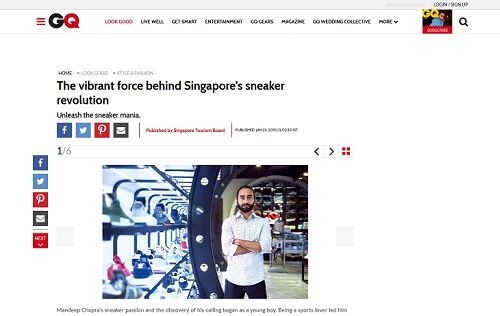By Arunima Rajan & Puja Disha Bharwani | ABBOTT
Dare to be different — your career will thank you for it. Here’s how to stand out from the crowd
Never before have we had access to this much free information on a daily basis. In the era of Google, where all you need is good wi-fi connection to get information, knowledge is no longer a factor in making your resume stand out from the stack.
It is no longer what you know, but what you do with what you know that gets you noticed, and eventually lands you that dream job.
1. The X-factor
Communications professional Rachna points out that in today’s fast paced, competitive environment, a degree from an Ivy League institute does not guarantee success.
“In the current world of start-ups, we have vast experiences that can negate the MBA requirement all together. It is therefore essential to brand yourself. What can you bring to the table that nobody else can?” asks Rachna.
Enjoy playing the saxophone or tabla? Or challenging yourself by going for extreme adventure sports? Maybe you believe in a certain environmental cause deeply and started a movement in college to spread awareness. These are just some of the things that highlight your unique characteristics and give you the X-factor edge.
And that edge gets results. “I got my first job not because of my academic credentials, but because I was the head of the cultural committee in my college. My team leader told me he hired me because if I could manage the most famous college cultural festival in India, it proved I have managerial qualities and leadership skills,” says Dev, an IT professional.
2. Bring out your Type A, positively
Curiosity, organisational dexterity and out-of-the-box thinking are the essential traits of an alpha personality in a workplace, say experts.
“Companies prefer employees with an entrepreneurial streak. Several companies fund their employee start-up ideas, and even provide them time to work on independent projects,” says Bindu Vinodan, an executive coach.
3. Embrace the company culture
Clearly, organisations look at whether or not a prospective employee can fit into the company culture. In young and competitive IT companies, where the average age of those in senior management is less than 40, recruiters tend to search for people who can make a name for themselves within the company.
“What matters more to employers today is whether the person can handle the extremely political environment of an organisation, which often resists a newcomer. Personal connections become extremely important in that case. That’s why several companies conduct personality tests for middle and senior management before hiring,” explains Dev.
4. Master people skills
Motivational speaker and activist Shiv Khera says good people skills are a timeless X-factor in advancing your career.
“The higher you go, the more important people skills are. And that is something not everyone has — the ability to negotiate, get their point across and convince others,” said Khera.
5. Nail the interview
So if you have your eye on a particular company and job, the first thing to do is to understand their corporate culture, environment and people. Look up the background of current employees through Linkedin.
Then, tailor-make your resume to fit their basic needs so you land an interview. Finally, wow them in person with your engaging communication and presentation skills so you make a lasting impression.
Remember, you are not just there for a one-way interview, so they can get to know you. Use this time wisely: ask questions and listen carefully to what the company’s goals are. Use them to showcase your X-factor being in line with their needs. Be memorable. Be X-traordinary.















